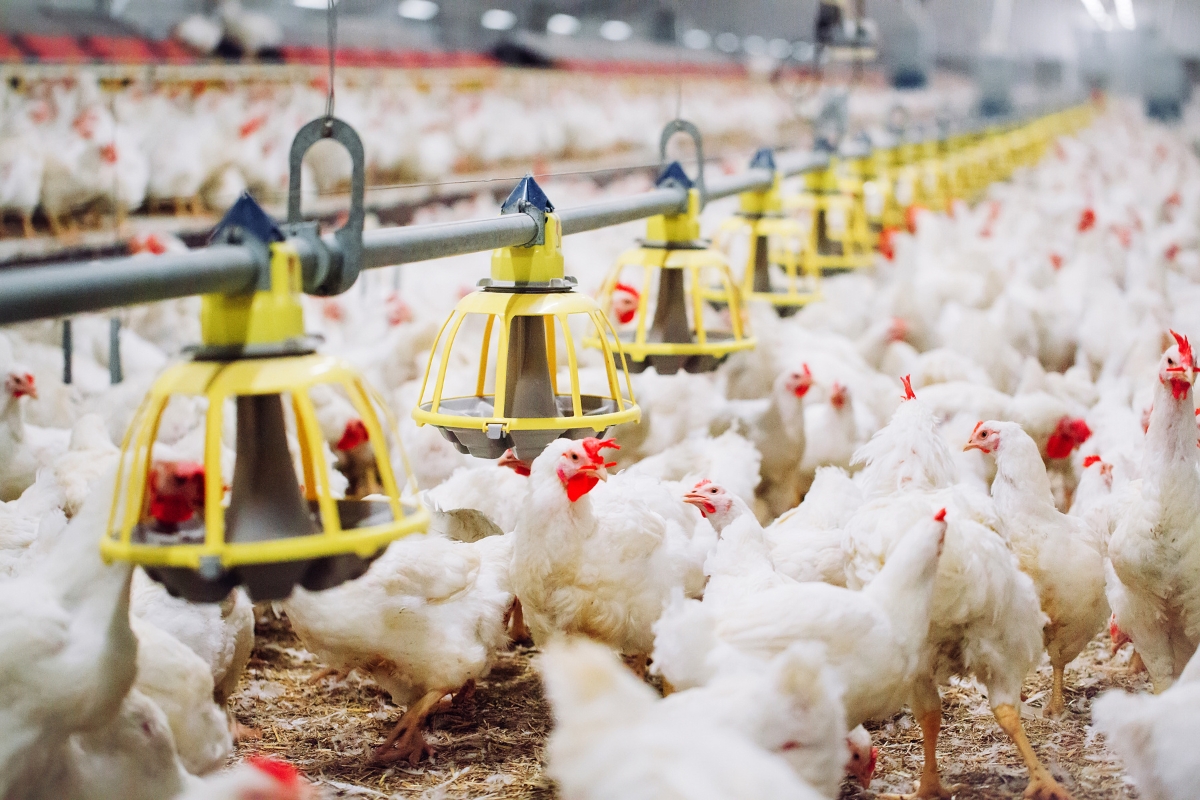Bacteriophages and the production of poultry
The poultry sector has recently struggled to control infections caused by a variety of bacteria, including Salmonella, Campylobacter, Listeria and Staphylococcus spp., as well as Escherichia coli, which are showing increasing resistance to antibiotics.
Treatment with antibiotics can significantly disrupt the balance of the microbiota, leading to dysbiosis, immunosuppression and further bacterial infections.
Fortunately, there is an effective alternative – bacteriophages – that can reduce colonization with these bacteria in poultry more efficiently than conventional antibiotics.
Bacteriophage cocktails are available that have greater specificity for certain bacterial species than antibiotics alone. In addition, products such as staphylophage (specific against staphylococci) have been developed that can be targeted against specific pathogens.
Bacteriophages or phage therapies used in poultry production show thus promise in combating bacterial infections that may occur in the process.
However, to maximize the success of phage therapy, several key elements must be considered. These are the timing of treatment, the amount used and applied, the method of administration, and the combination with other therapeutics. To make the best use of bacteriophages in poultry production, a comprehensive understanding of their mechanism of action on poultry pathogens should be developed.
Therefore, this review focuses on filling this gap by analyzing the mechanisms of bacteriophages against poultry pathogens, potential applications in the treatment of various diseases, the impact on the economy, and the current challenges in exploiting these benefits.
The authors Rao Zahid Abbas, Abdullah F Alsayeqh, and Amjad Islam Aqib published their findings in the article ‘Role of Bacteriophages for Optimized Health and Production of Poultry‘, on 1 December 2022.
Key topics include:
- The poultry sector struggles with infections caused by multidrug-resistant Salmonella, Campylobacter, Listeria and Staphylococcus spp. and Escherichia coli.
- Antibiotics used to combat these infections cause dysbiosis, immunosuppression, and the development of secondary infections.
- Bacteriophages have been reported to reduce colonization of Salmonella and Campylobacter in poultry without causing dysbiosis.
- The specificity of bacteriophages is greater than that of antibiotics and they can be used as a cocktail for enhanced antibacterial activity.
- The success of phage therapy depends on the time to application, the amount used, the delivery mechanism, and combination therapy with other therapeutics.

Abstract
The poultry sector is facing infections from Salmonella, Campylobacter, Listeria and Staphylococcus spp., and Escherichia coli, that have developed multidrug resistance aptitude.
Antibiotics cause disturbances in the balance of normal microbiota leading to dysbiosis, immunosuppression, and the development of secondary infections.
Bacteriophages have been reported to lower the colonization of Salmonella and Campylobacter in poultry. The specificity of bacteriophages is greater than that of antibiotics and can be used as a cocktail for enhanced antibacterial activity.
Specie-specific phages have been prepared, e.g., Staphylophage (used against Staphylococcus bacteria) that specifically eliminate bacterial pathogens. Bacteriophage products, e.g., BacWashTM and Ecolicide PX have been developed as antiseptics and disinfectants for effective biosecurity and biosafety measures. The success of phage therapy is influenced by time to use, the amount used, the delivery mechanism, and combination therapy with other therapeutics.
It is a need of time to build a comprehensive understanding of the use of bacteriophages in poultry production.
The current review thus focuses on mechanisms of bacteriophages against poultry pathogens, their applications in various therapeutics, impacts on the economy, and current challenges.
Keywords: bacteriophages; biosecurity and biosafety; drug resistance; health; poultry; production.
Copyright: the authors

Bacteriophages and poultry production – Mechanism of the phage cocktail to kill the C. jejuni. Orally administered phage cocktail to infected chicken. The phages kill the C. jejuni and decrease the level of C. jejuni in chickens. As a result, reduced human exposure and morbidity. Copyright: the authors.

 Anti-Salmonella polyvinyl alcohol coating containing a virulent phage PBSE191 and its application on chicken eggshell
Anti-Salmonella polyvinyl alcohol coating containing a virulent phage PBSE191 and its application on chicken eggshell